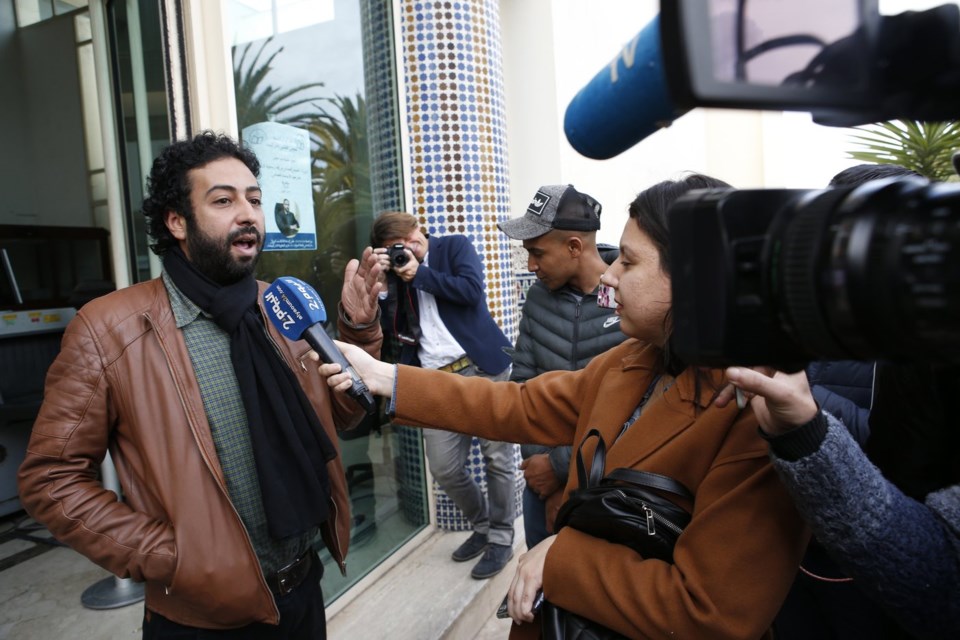RABAT, Morocco (AP) — Morocco’s King Mohammed VI on Monday pardoned three journalists who were charged with sex crimes and espionage in prosecutions widely condemned by press freedom advocates as retaliation for critical reporting.
Omar Radi, Taoufik Bouachrine and Soulaimane Raissouni were among 2,278 people who received pardons this week, according to Morocco's Ministry of Justice. The pardons were announced as Morocco celebrated Throne Day, marking the anniversary of when Mohammed VI ascended to the throne.
For more than four years, the journalists have been emblematic of Morocco's aggressive efforts to stifle criticism from news media and human rights activists. Civil liberties advocates, the European Parliament and the U.S. State Department at various points condemned their prosecutions as politically motivated.
The three Moroccan journalists were known for critical reporting and remarks on the kingdom's government and its policies.
Bouachrine, an outspoken opinion columnist and one-time editor of the independent newspaper Akhbar al-Youm, was sentenced to 12 years behind bars in 2018 after being found guilty of human trafficking, sexual assault and rape.
Raissouni, also a former editor of Akhbar al-Youm, was sentenced to five years on charges that included sexual assault in 2021.
Radi, an investigative reporter and activist, was sentenced to six years in 2021 on charges of espionage and sexual assault.
Organizations including Amnesty International, Human Rights Watch and Reporters Without Borders harshly condemned the prosecutions as politically motivated.
“Sex crimes charges have become another tool for authorities to punish journalists,” the Committee to Protect Journalists' Middle East and North Africa program wrote in 2021.
The cases were among those thrust into the spotlight when Amnesty International and the Paris-based journalism consortium Forbidden Stories published leaked documents suggesting the three journalists were among people spied on by Moroccan officials using malware installed on their smartphones. Authorities vigorously denied doing that.
The journalists' supporters applauded their release but highlighted how they believed the journalists were imprisoned after unfair processes.
“Congratulations. Awaiting the others — and democracy,” human rights activist Fouad Abdelmoumni wrote on Facebook.
Sam Metz, The Associated Press



